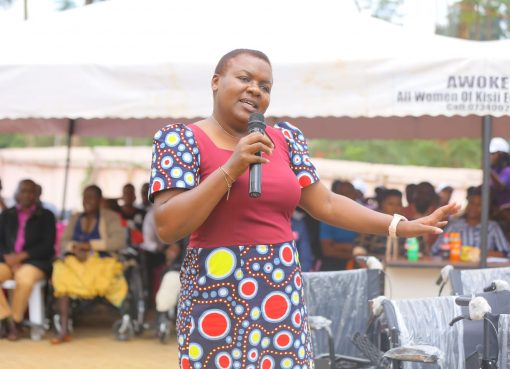The Independent Electoral and Boundaries Commission (IEBC) will this week sign a Memorandum of Understanding (MOU) with the Media fraternity on election result transmission.
The IEBC Chairman Wafula Chebukati said the memorandum of understanding stipulates the guidelines that journalists should adhere to while transmitting results from the polling stations and the National tallying centre.
“The guidelines are in a draft document which we are looking at, and we shall sign this week,” stated Chebukati.
He said the journey of wanting to work together started this year when the Commission met with Kenya Union of Journalists and the Editors Guild in Diani, Mombasa, and later in Nakuru where they signed an MOU.
The Chairman who was speaking during the National Election Conference 2022 Pre-Conference Forum themed ‘Media Framing and Opinion Polls in Shaping the Electoral Process’ held at the Kenyatta International Convention Centre said the Commission expects the media to assign reporters in all the 46,000 polling stations and the tallying centre.
He said even though the deadline for online accreditation for those covering the elections closed on June 28th this year, the commission will open it to allow journalists who were not accredited to apply.
Chebukati said those having challenges with accreditation should channel their complaints to the taskforce team that includes the Kenya Media Sector Working Group and IEBC.
He said the Commission has to date accredited a total of 4,054 journalists, of which 2000 badges have already been printed and will be distributed next week while 2000 are in the printing process.
The Chairman said the Commission values the media as a crucial partner in election coverage and takes what they publish seriously, adding that IEBC is ready to share information and the truth with the media in order to deal with the elephant of results transmission.
“We cannot do it on our own, we need the media to work with us as they are our watchdog, eye and ears. People trust you and would like to hear what you are saying,” stressed Chebukati.
He announced that IEBC has embarked on training the media personnel on election coverage so that they could engage them on results transmission.
“Let’s work together and ensure that Kenya’s election becomes transparent, people vote, votes are counted, people know the results and people go back to their work stations the following day,” urged the Chairman.
“We now have the media centre working group. In 2017 and previous years the situation was that media was not allowed the freedom to report results, This time the Commission recognizes that the constitution gives that independence and that is why we want to work with the media,” he said.
He assured that the election process will be transparent as journalists will be allowed to air the results once they have been announced by the Commission at the polling stations and the national tallying centre so that Kenyans can get what they deserve.
Chebukati also acknowledged the opinion poll pollsters, noting that the commission takes their scientific research seriously, as it helps them to improve their systems and processes.
He announced that IEBC is currently carrying out voter and civic education to ensure that the electorates have adequate information on the voting process.
In her remarks, the Resident Representative United Nations Development Programme (UNDP) in Kenya Mandisa Mashologu said electoral democratic processes across the world are increasingly vulnerable to misinformation and disinformation during this time when there is a lot of information of great ferocity being distributed by social media and other digital channels.
She said UNDP has deepened crisis prevention across the programmed portfolios globally, to support and make elections safer and trustworthy.
Mashologu announced that UNDP is collaborating with 40 countries who are widely using digital and other tools to stop corrosive hate speech and disputes.
In 2021, UNDP used over 42 million dollars investments in vigorous and transparent electoral management equipment to prevent disputes and avoid crisis.
“UNDP developed a digital misinformation platform that was launched in Kenya last week in collaboration with the Media Council of Kenya,” she added.
By Bernadette Khaduli





